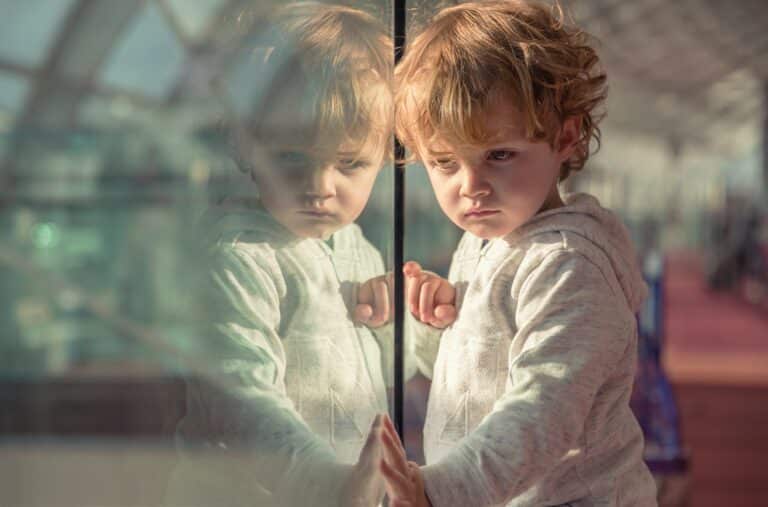Helping children cope with change
Change can be very stressful, even when it’s positive. Children thrive on predictability and routine, so helping children cope with change can be a real challenge. Even positive emotions  (like excitement) can be overwhelming in large doses for children – just think how frequently the birthday girl or boy ends up in tears before, during or after the party!
(like excitement) can be overwhelming in large doses for children – just think how frequently the birthday girl or boy ends up in tears before, during or after the party!
Some changes (such as starting a new school, moving house or introducing a new baby or a new partner) we can see coming. Others come out of the blue. Helping children cope with change in a positive way can help set them up for greater resilience and adaptability in the future. We’d love to wrap our children up in cotton wool and protect them from life’s knocks, but we can’t. And we wouldn’t be doing them any favours if we could.
Helping children cope with change by teaching them coping skills equips them to deal with life and manage its ups, downs, and sudden jolts. Here’s a few ideas on how to do it.
Get them involved
Children cope best with change when they are prepared for it in advance. Try explaining why the change is necessary and big up the advantages. If you can, do a dress-rehearsal or find a way to familiarise your child with the change that is coming. Get them involved in making decisions (such as how their bedroom will be decorated in a new house). Use books, films and family life to point out how other children have also adapted to similar changes (see Books for helping children cope with change). Look at old photos and discuss how life changes for children as they get older and though we might feel scared or sad to start with, we quickly adapt and start to enjoy new circumstances.
Maintain routines
When something big happens in our lives we can often feel like our whole world has fallen apart. Try to maintain your child’s routines as much as possible so that they feel less threatened by the change. Only change what needs to be changed, or try to stagger changes so that they don’t all happen at once. A predictable routine helps children feel secure so helping children cope with change requires an equal emphasis on what is not changing.
Acknowledge their feelings
If your child is upset, don’t ignore it. Stop what you are doing and pay attention. Encourage them to tell you how they are feeling. If they can’t, help them find the words by saying what you see: “You look upset.” Let them know it is ok to feel that way when big changes happen. Ask what they are going to do to make themselves feel better. If they don’t have any ideas, then prompt them: “Would it make you feel better to go and lie down and read a book?” Make sure you stay calm yourself and don’t get emotional. (Check out these books to help children with anxiety and books for helping small children cope with big feelings)
Teach coping skills
Coping skills help children cope with change by teaching them strategies for calming their emotions. Typical coping strategies include slow deep breaths (for relaxation), distraction (thinking about something else), problem-solving (finding a way to make the situation better) and positive self-talk (telling yourself it will all be ok). Work with your child when they are not upset to identify coping strategies that might work for them, then prompt them to try those strategies if they are upset or anxious. Be creative – what works for you might not work for your child. My son’s coping strategy was to go and jump on the trampoline when he was feeling emotional!
If the change involves divorce or separation, then take a look at my specific advice on Helping children through divorce and separation, or if negative thinking is the issue then you might find Teaching Optimism useful. If you are worried about your child’s emotional wellbeing, visit the Young Minds website for expert advice and guidance.







Some really good tips! Great post 🙂 #thelist
Glad you found it helpful x
Great advice Anita! I don’t cope well with change at all and haven’t ever since I was a child. I think it’s so important for parents to be aware of this and to make children feel safe when changes are occurring. x
I’m a bit of a change junky myself – can’t bear things to stay the same too long. One of my children is like me (he moves the furniture round in his bedroom once a week!) but the other is the opposite. I’ve had to learn to see things from his point of view and to realise that things that make me excited make him nervous!
Great post Anita! We have just come out of the other side of a house move which has ensued in some very odd behaviour from our toddler as she has had to cope with the change. I have tried to alleviate much of this by using most of the above strategies! #TheList
Glad to hear they worked! It’s hard to explain change to toddlers in a way they can understand, but helping them feel safe and secure in the rest of their life goes a long way.